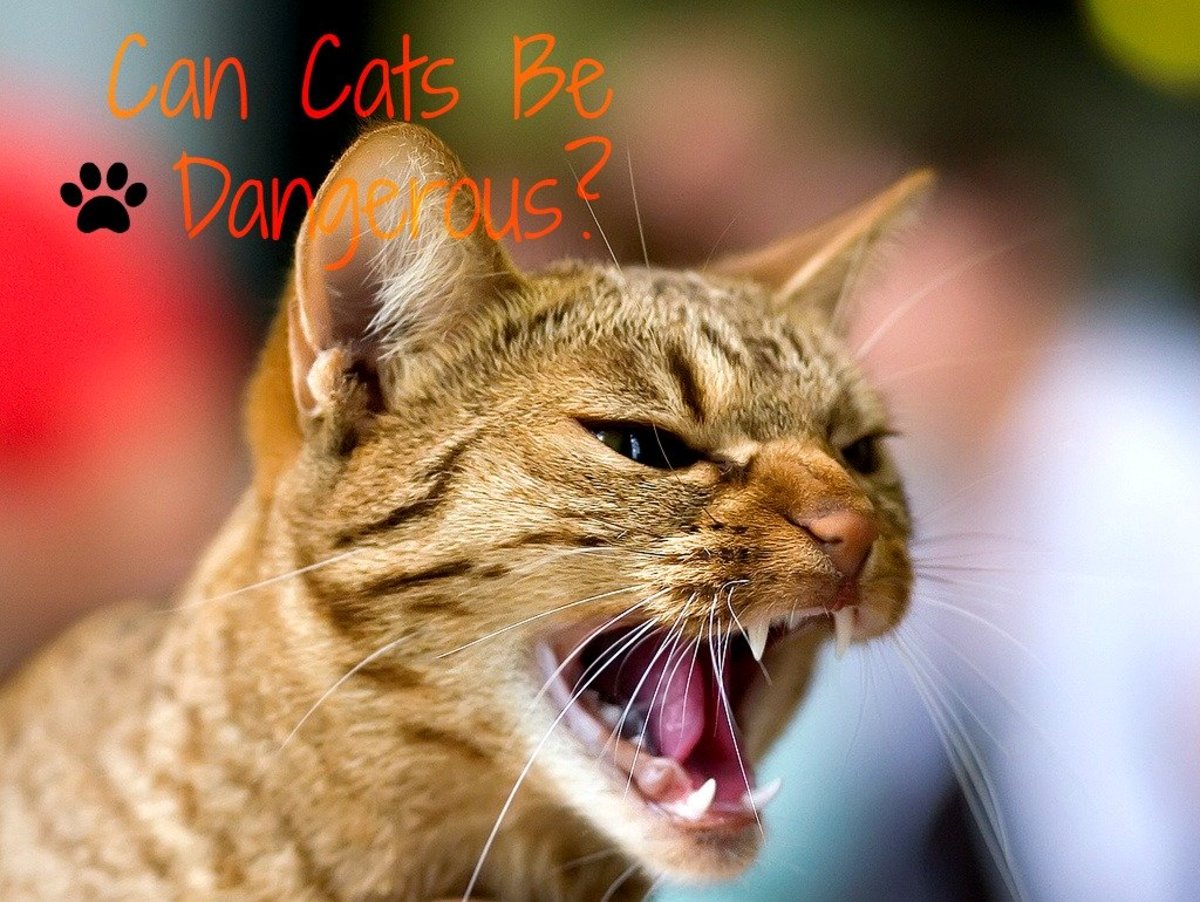Your cat may randomly bite you due to a variety of reasons, including playfulness, aggression, or overstimulation. Understanding the underlying cause can help address the issue effectively.
(Introduction) Cats can be delightful companions, with their soft fur and gentle purring. However, their occasional biting behavior can leave owners puzzled and concerned. If you’ve found yourself on the receiving end of your cat’s unpredictable bites, you are not alone.
Many cat owners have experienced this behavior, and it can be frustrating and even painful. In order to understand why cats bite, it’s important to consider their natural instincts and behaviors. By delving into the reasons behind your cat’s random bites, you can take the necessary steps to resolve the issue and create a harmonious relationship with your feline friend.
Unveiling The Feline Predator Within
Understanding Why Your Cat Bites You Cats are fascinating creatures with unpredictable behavior patterns. Exploring the reasons behind their seemingly random biting incidents reveals their innate predator instincts. These instincts, deeply ingrained, stem from their wild ancestry. Even though domesticated, cats still possess a strong hunting drive.
When playing or interacting, sudden bites may occur as a result of instinctual responses triggered by movement or excitement. It’s important to realize that a cat’s intention is not to inflict harm but rather to engage in playful behavior. Additionally, pain or discomfort, such as an injury or illness, can also cause a cat to act out with biting.
If your cat’s biting becomes excessive or aggressive, consulting a veterinarian or animal behaviorist is recommended. By understanding our feline companions’ natural instincts, we can better navigate our relationships with them and prevent potential conflicts.
The Link Between Play And Biting
Cats have a natural playful nature, but sometimes play can escalate into biting behavior. Understanding the correlation between play and biting is important. Playful actions like chasing, pouncing, and wrestling are ways for cats to mimic hunting behaviors. However, cats can become overstimulated during play, leading to aggression and biting.
It’s essential to recognize the signs when play crosses the line to avoid getting bitten. Pay attention to your cat’s body language, such as dilated pupils, tensed muscles, and low growls. Giving your cat appropriate outlets for play, such as interactive toys and regular exercise, can help redirect their energy and prevent biting incidents.
Monitoring their play sessions and providing positive reinforcement for appropriate play behaviors are recommended. Remember, understanding your cat’s playful nature is key to preventing random biting episodes.
Identifying Redirected Aggression
Redirected aggression in cats is a common behavior where a cat lashes out at a person or another animal due to frustration or fear caused by something else. It can be confusing for cat owners, as the aggression seems to come out of nowhere.
Recognizing the signs and triggers of redirected aggression is important in managing this behavior. Cats may display dilated pupils, flattened ears, and aggressive body language before biting. Triggers can include seeing another cat outside, hearing loud noises, or experiencing unfamiliar scents.
To prevent bites, it is essential to redirect the cat’s behavior by offering interactive toys, providing a designated hiding spot, and using positive reinforcement. Additionally, creating a safe and stimulating environment can help reduce anxiety and prevent future instances of redirected aggression.
Understanding and responding to redirected aggression can foster a harmonious relationship between cat and owner.
Interpreting Feline Signals
Cats have their own unique ways of communicating, and understanding their signals can be quite challenging. Body language cues play a crucial role in deciphering their intentions. Whether it’s a twitching tail, flattened ears, or dilated pupils, these subtle gestures can serve as warning signs.
By observing their body language, you can preemptively identify cues that may lead to biting incidents. Cats communicate using a variety of methods, such as meowing, purring, or hissing, but it’s often their non-verbal cues that require closer attention. Developing the ability to interpret these signals can help you understand when your cat may be feeling threatened, anxious, or simply playful.
By recognizing these signs early on, you can better respond to your cat’s needs and minimize the chances of being on the receiving end of an unexpected bite. Understanding cat communication is key to maintaining a harmonious relationship with your feline companion.
Overstimulation And Sensory Sensitivity
Cats biting their owners is a common behavior that can be attributed to overstimulation and sensory sensitivity. Delving into the topic, it is important to understand how sensory sensitivities can lead to biting incidents. Cats have heightened senses and can quickly become overwhelmed, leading them to react by biting.
To manage overstimulation and reduce biting incidents, several strategies can be implemented. First, it is crucial to recognize the signs of overstimulation in cats, such as dilated pupils, twitching tails, or flattened ears. When these signs are present, it is important to give the cat space and allow them to calm down.
Additionally, providing environmental enrichment and interactive playtime sessions can help to channel their energy in positive ways. By understanding the impact of overstimulation on cat behavior and implementing appropriate strategies, owners can prevent biting incidents and create a harmonious relationship with their feline companions.
Positive Reinforcement For Biting Prevention
Biting can be a concerning behavior in cats. However, it is important to focus on positive reinforcement techniques to prevent biting. By using rewards effectively, we can discourage unwanted behavior and encourage desired actions. Training and enrichment play a crucial role in this process.
Providing mental and physical stimulation through activities such as puzzles, interactive toys, and play sessions can redirect your cat’s energy and prevent them from resorting to biting. Additionally, using treats, praise, and rewards when your cat displays appropriate behavior can reinforce these positive actions.
It is important to remember that consistency and patience are key when using positive reinforcement techniques. By implementing these strategies, you can successfully discourage biting and build a stronger bond with your feline companion.
Creating A Cat-Friendly Environment
Creating a cat-friendly environment is crucial for addressing the issue of random biting. By establishing a safe and stimulating living space, cats are less likely to exhibit aggressive behavior. It is important to provide appropriate outlets for their natural instincts and energy, such as scratching posts and interactive toys.
Additionally, creating a harmonious environment is essential to minimize biting incidents. This can be achieved by maintaining a calm and peaceful atmosphere at home. Avoid loud noises or sudden movements that may startle your cat. Furthermore, providing regular playtime and mental stimulation through puzzle toys or laser pointers can help redirect their energy in a positive way.
Remember, a well-balanced environment is key to promoting a happy and bite-free relationship with your feline friend.
When To Consult A Veterinarian Or Behaviorist
It is important to recognize when your cat’s biting behavior may require professional intervention. Veterinary care plays a crucial role in addressing biting issues. If you notice your cat’s biting becoming more frequent or aggressive, it is advisable to consult a veterinarian.
They can help determine if there are any underlying medical conditions contributing to the behavior and provide appropriate treatment. Additionally, seeking guidance from a certified animal behaviorist can offer valuable insights into understanding your cat’s behavior and implementing effective training techniques.
These professionals have the knowledge and expertise to assess the situation and provide tailored advice to manage and modify your cat’s biting behavior. Remember, seeking professional help can ensure the safety and well-being of both you and your furry friend.
Resolving Behavioral Issues Through Behavioral Modification
Cats may bite randomly due to behavioral issues that can be resolved through behavior modification. Exploring techniques specifically designed for aggressive cats can help in developing a tailored behavior modification plan suited to the individual cat. By addressing underlying issues, such as fear or stress, and promoting positive behavior, owners can effectively manage biting problems.
Behavior modification involves identifying triggers and implementing techniques like positive reinforcement, redirection, and gradual exposure to potentially stressful situations. It is important to note that consistency, patience, and understanding are key when implementing behavior modification strategies. Being aware of the cat’s body language and providing a safe and stimulating environment can also contribute to reducing biting incidents.
Seeking professional advice from a veterinarian or animal behaviorist can provide additional insights and guidance in addressing this issue.

Credit: pethelpful.com
Frequently Asked Questions On Why Does My Cat Randomly Bite Me
Why Does My Cat Randomly Bite Me?
Cats may bite randomly due to various reasons such as play aggression, redirected aggression, fear, pain, or overstimulation. Understanding the triggers and body language of your cat can help prevent such behavior. Providing appropriate toys, regular playtime, and seeking professional advice can also help address this issue.
How Can I Prevent My Cat From Biting Me?
To prevent your cat from biting, you can start by avoiding any rough play or aggressive behavior that may encourage biting. Ensure your cat has plenty of mental and physical stimulation through interactive toys and play sessions. Positive reinforcement techniques can also be used to reward good behavior and discourage biting.
Is Random Biting Normal Behavior For Cats?
Random biting is not considered normal behavior for cats. It may indicate underlying issues such as stress, anxiety, or a medical condition. It is important to observe your cat’s behavior, provide a safe environment, and consult with a veterinarian to rule out any health concerns or behavioral problems.
Should I Punish My Cat For Biting Me?
Punishing your cat for biting is not recommended as it can worsen the behavior and strain your relationship. Instead, focus on positive reinforcement and redirecting their attention towards appropriate toys or activities. Providing consistent training and seeking professional guidance can help address the issue effectively.
Conclusion
Understanding why cats randomly bite is essential for maintaining a harmonious relationship with our feline friends. By considering the underlying causes and implementing necessary preventive measures, we can ensure a safe and enjoyable environment for both ourselves and our cats.
Remember, cats may bite due to play aggression, fear, feeling threatened, or even redirected aggression. Engaging in interactive play, providing mental and physical stimulation, and giving them respect for their space can help minimize these instances. It is also crucial to seek professional advice if the biting behavior persists or escalates.
With patience, love, and proper understanding, we can foster a strong bond with our cats while keeping ourselves safe from unexpected bites. So, let’s continue to educate ourselves and live in harmony with our beloved feline companions.



